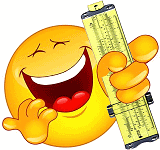How to Choose a College Major |
|
Here is a very important piece of advice: Be sure to choose a major that does not involve Known Facts and Right Answers. This means you must *not* major in mathematics, physics, biology, or chemistry, because these subjects involve actual facts. If, for example, you major in mathematics, you're going to wander into class one day and the professor will say: "Define the cosine integer of the quadrant of a rhomboid binary axis, and extrapolate your result to five significant vertices." If you don't come up with *exactly* the answer the professor has in mind, you fail. The same is true of chemistry: if you write in your exam book that carbon and hydrogen combine to form oak, your professor will flunk you. He wants you to come up with the same answer he and all the other chemists have agreed on. Scientists are extremely snotty about this. So you should major in subjects like English, philosophy, psychology, and sociology -- subjects in which nobody really understands what anybody else is talking about, and which involve virtually no actual facts. I attended classes in all these subjects, so I'll give you a quick overview of each: ENGLISH: This involves writing papers about long books you have read little snippets of just before class. Here is a tip on how to get good grades on your English papers: Never say anything about a book that anybody with any common sense would say. For example, suppose you are studying Moby-Dick. Anybody with any common sense would say that Moby-Dick is a big white whale, since the characters in the book refer to it as a big white whale roughly eleven thousand times. So in *your* paper, *you* say Moby-Dick is actually the Republic of Ireland. Your professor, who is sick to death of reading papers and never liked Moby-Dick anyway, will think you are enormously creative. If you can regularly come up with lunatic interpretations of simple stories, you should major in English. PHILOSOPHY: Basically, this involves sitting in a room and deciding there is no such thing as reality and then going to lunch. You should major in philosophy if you plan to take a lot of drugs. PSYCHOLOGY: This involves talking about rats and dreams. Psychologists are *obsessed* with rats and dreams. I once spent an entire semester training a rat to punch little buttons in a certain sequence, then training my roommate to do the same thing. The rat learned much faster. My roommate is now a doctor. If you like rats or dreams, and above all if you dream about rats, you should major in psychology. SOCIOLOGY: For sheer lack of intelligibility, sociology is far and away the number one subject. I sat through hundreds of hours of sociology courses, and read gobs of sociology writing, and I never once heard or read a coherent statement. This is because sociologists want to be considered scientists, so they spend most of their time translating simple, obvious observations into scientific-sounding code. If you plan to major in sociology, you'll have to learn to do the same thing. For example, suppose you have observed that children cry when they fall down. You should write: "Methodological observation of the sociometrical behavior tendencies of prematurated isolates indicates that a casual relationship exists between groundward tropism and lachrimatory, or 'crying,' behavior forms." If you can keep this up for fifty or sixty pages, you will get a large government grant.
...provided by an anonymous mailer (discovered since to be part of a Dave
Barry book entitled "Bad
Habits.") - thanks to Kevin C. |
